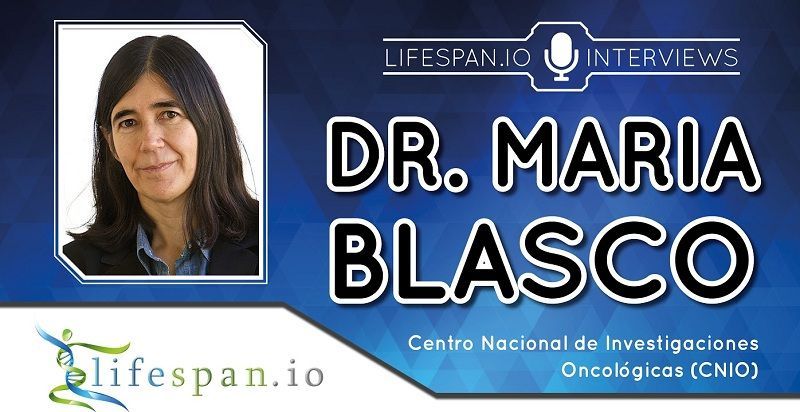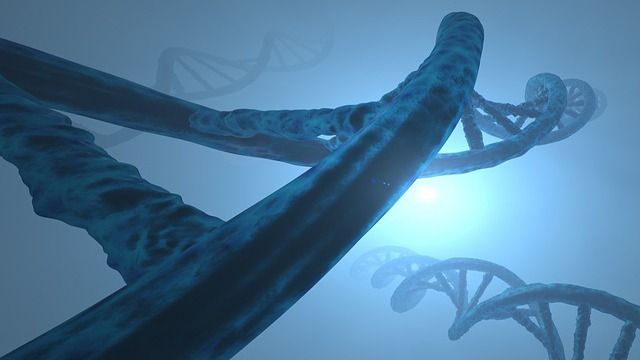Leading telomere researcher Maria Blasco press conference at the Ending Age-Related Diseases conference, New York, NY, July 12, 2019.
Category: life extension – Page 508

An Interview with Dr. María Blasco
Our Ending Age-Related Diseases conference in New York is over for this year and has been a huge success. We had the opportunity to interview one of the speakers, Dr. Mar í a Blasco, during the conference, and we asked her more about her work with telomeres, telomerase therapy, and aging.
Telomere loss is a proposed reason we age
Telomere attrition—the wearing out of your chromosomes’ protective caps with age—is widely thought to be one of the major drivers of aging. With each division, telomeres shorten a little bit, and after 50–70 divisions, they become critically short. Once this threshold (the Hayflick limit) is hit, cells undergo replicative senescence, and their division comes to a grinding halt.

Donate: Thank you for donating to SENS Research Foundation
Your support will help us in our mission to research, develop and promote comprehensive regenerative medicine solutions for the diseases and disabilities of aging. SRF is a 501©(3) non-profit. Please consult your tax advisor – your donation may be tax deductible as no goods or services were received in exchange for the gift.

Is Immortality Worth It?
Any major breakthrough in extending human life would drastically alter population projections. The social effects, while obviously huge, would depend on whether the years of senility were prolonged, too; whether women’s age at menopause would increase; and how families would be structured if many generations were alive at the same time. Expensive treatments to extend human lives could also have implications for inequality; as in many other areas of technology, the wealthy would be most able to afford such services.
Almost everyone would welcome an extension of their healthy lifespan, and some scientists are looking at increasingly extreme ways to achieve that. But any major breakthrough in this area could have unwanted and far-reaching demographic, social, and economic implications.
CAMBRIDGE – Humans have long sought the elixir of youth, so it is not surprising that even non-scientists closely follow the latest research into aging. But is what most people consider simply a fact of life actually a “disease” that can be cured? Or is there some insurmountable limit to the lifespan of human bodies?
Dr. Michael Fossel: Compassion is the reason to reverse aging!
An excellent interview. Fossel and Aubrey de Grey of the SENS Foundation are in disagreement about telomerase.
https://www.singularityweblog.com/michael-fossel/
Michael Fossel‘s dream is to reverse human aging and since 1996 he has been a strong and vocal advocate of experimenting with telomerase therapy as a potential way of intervention in a wide variety of medical conditions related to aging. In addition, Fossel is one of those unique people who are a real pleasure to not only see speaking from the stage but also to meet in person. And having done both of these, I can honestly say that Michael is as much an impassioned expert speaker as he is a compassionate human being. Not only that but he is also a generous host, who loves entertaining guests visiting his fabulous house near Rapid Falls, Michigan and I have to admit I had tons of fun socializing with him both in front and behind camera. So, all in all, it was a lot of fun meeting and interviewing Dr. Fossel for my Singularity 1 on 1 podcast.
During our 1 hour discussion with Michael we cover a variety of interesting topics such as: his dream to reverse aging and the desirability and feasibility thereof; the Hayflick limit of cell division and Aubrey de Grey’s concerns that telomerase therapy may cause cancer; the distinction between reversing aging and living forever; his “non-sexy” tips on healthy living; his take on cryonics and transhumanism…
My favorite quotes that I will take away from this interview with Michael Fossel are:
Zoltan Istvan talks with Science-Based species | Life Extension, UBI, Radical technological change
The prominent Transhumanist, Zoltan Istvan, discusses about his future involvement in the Transhumanist community, e.g., possibly running for the 2020 US Presidency.
Check out his webiste: zoltanistvan.com

Add 12 to 14 Years to Healthy Life Expectancy
When I founded the Life Extension® group in 1977, our unique purposes attracted a lot of media attention.
A question reporters often asked me was:
“Why do you want to live so long?”
Rather than respond to the obvious, I made it clear that if people followed healthier lifestyles, they could add about 15 years to their lifespans.